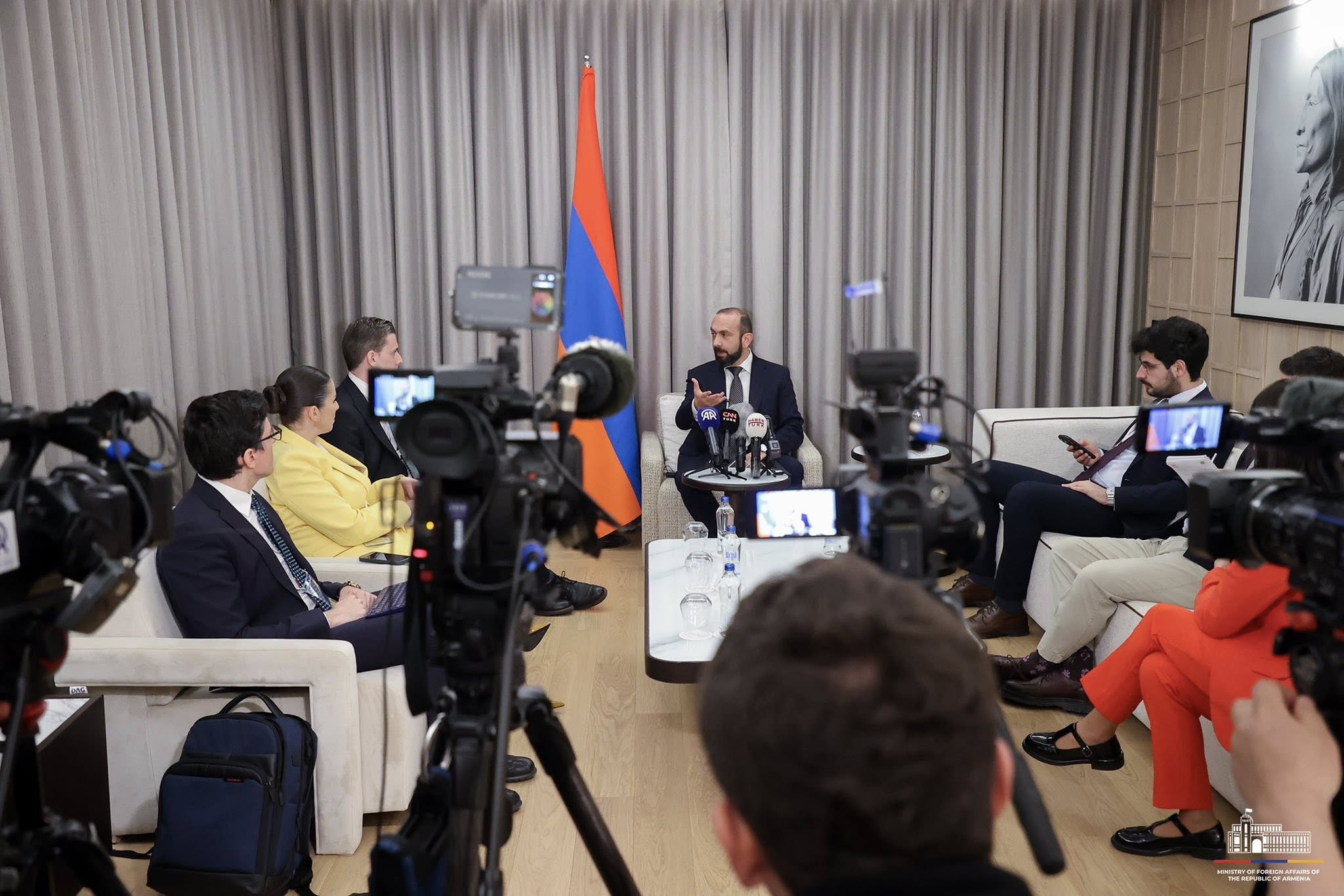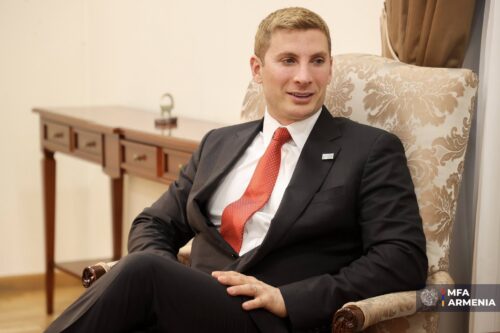
Azerbaijan considers itself the successor to over 60% of Armenia’s sovereign territory: Highlights from Ararat Mirzoyan’s interview
Armenian Foreign Minister Ararat Mirzoyan gave an interview to Turkish media: Below are the highlights from the interview:
- We had an agreement to open the border for citizens of third countries, as well as for citizens holding diplomatic passports from Armenia and Turkey. Unfortunately, this agreement has not yet been implemented. However, both sides share a common understanding that the ultimate goal is the full normalization of relations, the establishment of diplomatic relations, and the complete opening of the border.
- We have managed to agree on the text of the draft peace agreement, which is fully ready for signing. This is quite a significant achievement. I would call it a historical event, something unprecedented.
- We have proposed to immediately begin consultations with our Azerbaijani counterparts to determine the time and venue for the signing ceremony. However, unfortunately, we observe that Azerbaijan has a somewhat different perspective on this issue.
- Azerbaijan claims that in our Constitution, in its preamble, we reference our Declaration of Independence, which is true, and according to them, we have territorial claims against their territorial integrity, which is not that accurate, as only those parts of the Declaration of Independence have mandatory legal force in the sense of the Constitution, which are literally quoted in the Constitution.
- In Azerbaijan’s Declaration of Independence, they declare that the present-day Republic of Azerbaijan is the successor to the first Azerbaijani (Democratic) Republic, not the Soviet one. The first Azerbaijani Republic, which existed before the Soviet Union, declared its sovereignty over much larger territories than today’s Azerbaijan. This includes over 60% of today’s sovereign territories of Armenia. Thus, we see that we have our own concerns.
- There is an idea to sign the peace agreement at the border between Armenia and Azerbaijan. Several other capitals have offered their services, and I do not rule out any option. I have not yet received that proposal. I do not exclude any possibilities.
- When the democratic revolution occurred in Armenia and our current ruling party came to power, we almost immediately announced that we were going to make amendments to our Constitution. As I see it now, this will not only be a change to the existing Constitution but also a new Constitution. The current commission working on constitutional amendments is discussing legal mechanisms, and as far as I know, the mandate of the commission expires in 2026.
- Regarding the European observation mission, it should be noted that the mission’s mandate is primarily aimed at supporting the normalization process between Armenia and Azerbaijan, as well as ensuring stability along the border. Once the peace agreement is signed and comes into force, such a mission will no longer be necessary. Once stability is established along the border, it will mean that the mandate—the mission—is completed, and no further involvement will be needed.
- If you consider Armenian public opinion, you will see that a significant part of the citizens of Armenia believes that Azerbaijan has further plans to launch a new attack on Armenia, to establish control over certain parts of its sovereign territories, and so on.
- History is history, memory is memory. It is very difficult to forget our ancestors and forget history. But one thing is to pay respect to the past, to history, and entirely another to live in the past. Staying in the past is very easy. Most likely, moving forward requires a bit more courage, a bit more understanding, and a little more focus and faith in the future. We prefer the future. We must do this together.
- The brief history of Armenia-Azerbaijan negotiations shows that there have been several supporting actors and mediators, such as Russia, the U.S., the EU, and various countries. However, the history of Armenia-Azerbaijan negotiations shows that when we have had bilateral negotiations, those negotiations have been the most successful.


